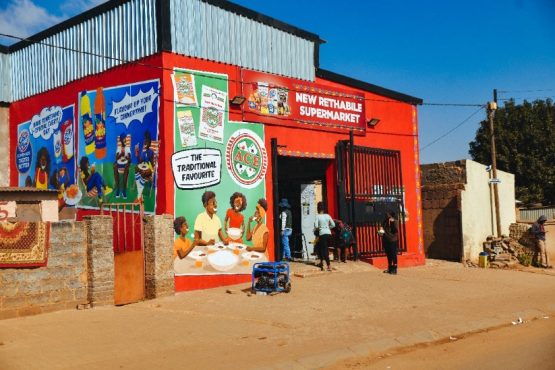Business
The R1 Trillion Shadow: The Stark Reality of South Africa’s Unregistered Township Economy

Drive through any of South Africa’s vibrant townships and you’ll see it immediately: an economy in motion. Spaza shops, hair salons, mechanics, and street vendors form the bustling commercial heartbeat of these communities. But a startling new report reveals a hidden truth about this economic powerhouse: four out of every five of these businesses are operating completely off the official radar, unregistered and in the shadows.
This statistic lays bare a massive structural gap in the country’s economic landscape. As the total informal economy nears a colossal R1 trillion in value, the fact that the vast majority of its players are informal presents both a staggering challenge and an unprecedented opportunity.
The Scale of Informality
The numbers are difficult to ignore. With 80% of township enterprises lacking any formal registration, it means the backbone of local commercethe very businesses that provide essential goods, services, and employmentexists outside the formal systems of the state. These entrepreneurs are the embodiment of hustle, building livelihoods from the ground up without business licenses, tax numbers, or official recognition.
This isn’t a small niche. We are talking about a vast network of micro-enterprises that collectively represent an economic force nearly equivalent to a third of the government’s entire national budget. Their contribution is real, but it’s largely invisible in the official story of the South African economy.
The Barrier Wall
Why is the rate of registration so low? For many of these entrepreneurs, the barriers are not a lack of ambition, but a wall of practical obstacles. The process of formal registration with the Companies and Intellectual Property Commission (CIPC) can be daunting, expensive, and time-consuming for someone running a one-person operation.
There is also a deep-seated fear of the financial burden that comes with formality. Many business owners worry that registration will automatically lead to tax obligations, municipal rates, and compliance costs they simply cannot afford on their slim margins. For them, staying under the radar is a strategy for survival, not a rejection of legitimacy.
The Cost of Remaining Invisible
While operating informally offers short-term relief from red tape, it carries significant long-term costs for both the business owner and the economy. Unregistered businesses are locked out of the formal financial system. They cannot access business loans, open a corporate bank account, or secure investment to grow. They cannot enter into formal supply contracts with large corporations or government.
For the national fiscus, this massive informal sector represents a vast pool of untapped potential. Bringing even a fraction of these businesses into the formal fold could broaden the tax base, improve economic data, and lead to more targeted support for small enterprises.
The path forward is not to punish these entrepreneurs, but to empower them. The near-R1 trillion township economy is not a problem to be solved, but an asset to be unlocked. The first step is building a bridge that makes formalization not a threat, but a tangible opportunity for growth.
{Source: moneyweb}
Follow Joburg ETC on Facebook, Twitter , TikTok and Instagram
For more News in Johannesburg, visit joburgetc.com



























